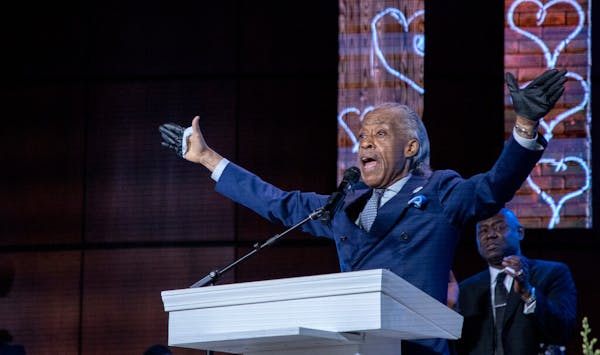Minneapolis City Council members plan to vote Friday on some of the first changes to be made to the Police Department in response to the death of George Floyd.
Representatives for the Minnesota Department of Human Rights and city elected officials were working Thursday to negotiate a stipulated temporary restraining order that will mandate some immediate changes and also set a timeline for the state's investigation into whether the Minneapolis Police Department engaged in racial discrimination over the past 10 years.
City Council President Lisa Bender said the city was still working Thursday evening on details of the document, which the council planned to vote on during a public meeting Friday afternoon.
If the council gives its blessing, as is expected, the order will also require approval from a judge at a hearing that is likely to be scheduled next week, according to a presentation given to the city's Commission on Civil Rights earlier this week.
"The timeline for the impact of the [temporary restraining order] is for this weekend," Bender said. "It's for immediate accountability measures for the Police Department. It's not meant to be anywhere near starting this bigger conversation."
State Human Rights Commissioner Rebecca Lucero said, without providing specifics of the negotiated agreement: "We are really committed to working very quickly to making sure we can implement some changes immediately. We continue to have that commitment and continue to move forward with that."
The state Department of Human Rights on Tuesday filed a civil rights charge against the police department, citing Floyd's death. It was the first time the human rights department has launched a systemic investigation into the largest police department in the state.
In the days since Floyd died, several elected officials have publicly floated various reform proposals, ranging from defunding the department immediately to taking a slower approach and sending social workers or mental health professionals to some calls that are now handled by police.
Mayor Jacob Frey has committed to "working with the community towards deep, structural reforms that address systemic racism in our laws and in policing." Spokesman Mychal Vlatkovich said the mayor "does not support abolishing the police department."
Council Member Jeremiah Ellison, one of the most vocal critics of the city's response to the protests and riots that followed Floyd's death, tweeted Thursday: "We are going to dismantle the Minneapolis Police Department."
Bender, a few hours later, issued her own tweet repeating that message and adding that they will "replace it with a transformative new model of public safety."
In an interview, she said she could imagine a scenario where the state's investigation results in Minneapolis police eventually entering a receivership that restructures the department.
Speaking only for herself and not for the council as whole, Bender said she would support shifting from a traditional police department to a wider public safety department oriented toward violence prevention and community-based services.
In that kind of scenario, it's possible that social workers or medics could respond to some calls now being handled by police.
Major reforms of that kind would not happen immediately, she said, but are more likely to be discussed later this year or next. And, she said, they would involve opportunities for community input.
"To do this kind of big work, we need a deeper, broader conversation than we've ever had before," Bender said. "We need white people like me and my neighbors to show up in a different way."
Staff writer Briana Bierschbach contributed to this report.

Want to share info with the Star Tribune? How to do it securely

'Safe recovery sites' would offer syringes, naloxone and more to people using drugs. The plan could be in peril.
New Minnesota GOP leaders seek peace with party's anti-establishment wing

Who is Republican Lisa Demuth, Minnesota's first House speaker of color?

